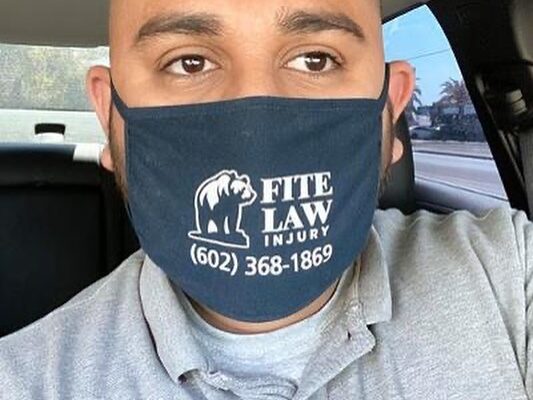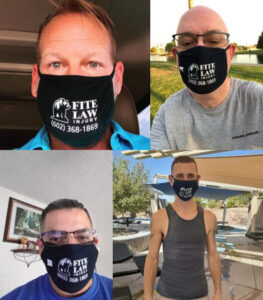The beginning of the school year is when we begin to see an increase in the average number of fatal car accidents involving teens. Although the pandemic has delayed classroom learning for most districts, it is still a good time to remind parents and teens of some simple rules for inexperienced drivers that can help prevent accidents.
- Teach your teen to drive defensively. Defensive driving is the act of driving as though everyone else on the road is out of their minds and likely to behave like they are at a roller derby. Teen drivers are not always responsible for the events that lead to a crash. Sometimes, it is a matter of failing to pay attention to what other drivers are doing – or not doing. To get their license, teens need to know the “rules of the road” intimately, but they also need to be aware that they share the road with others who may not always remember or follow those rules. Like the guy in the lane to their right doesn’t use his turn signal before changing lanes. Or the woman up ahead who slams on her breaks because she was too preoccupied with her kids in the back seat to notice traffic has come to a standstill. Think of the times you’ve been driving on the freeway where traffic is moving just fine when suddenly, the large truck in front of you suddenly brakes hard and swerves into the shoulder to avoid a crash. Or that time a vehicle ran a red light and nearly side-swiped you. Or, as is quite common in Arizona, that last car in the left turn lane determined to “make it” after the arrow has already turned red. Even the most experience drivers are sometimes reckless and, well, just plain stupid. These are the types of scenarios teen driver needs to be aware. It’s not necessarily a matter of not trusting them, it is not trusting everyone else.
- Make sure your teen has plenty of time. We have all been a little late heading out the door, which causes us to drive a little faster and maybe not as carefully. As hard as it may be to get your teen out of bed in the morning, help him leave the house with plenty of time to get to wherever he is going without feel rushed. If he ends up running behind, tell him it is okay – better late than dead! It sounds harsh, but it is true. Detention is temporary. Dead is forever. When inexperienced drivers feel rushed, they tend to pay less attention to safety and important rules of the road, such as using turn signals, driving the speed limit, and stopping when traffic lights are turning red.
- Do not let your teen drive with other teens until they are capable. Studies have repeatedly shown that teen drivers are distracted by the presence of other teens while driving. They want to chat, play music, take photos, Facetime, and post to social media. Hard ground rule – no friends in the car until you are sure your teen is a confident, focused, and capable driver. On the plus side, the distraction factor does not usually apply to relatives, such as younger siblings, but still make sure your teen is a safe driver before assigning her soccer practice drop-off and pick-up duties.
- Speaking of ground rules…Phones should not be anywhere near your teen driver’s hand while he is driving. Hopefully, you have modeled this good behavior. If not, you and your teen should be aware that in the State of Arizona, getting caught using a phone while driving can result in a ticket and a fine. Recent studies show that a person attempting to text while driving has the same accuracy, error, and response rate as a person who is driving under the influence of alcohol over the legal limit. Driving safety advocates have been working towards strengthening the law so that causing a crash while texting makes the driver subject to punitive damages, which are monetary awards for the victim that are specifically meant to punish the driver at fault, rather than just compensate for the victim’s injuries. This can be a very important distinction because almost every vehicle insurance policy excludes payment of punitive damages – meaning the money will come directly from your pocket regardless of how much insurance you have.
- This rule is for the divas and social media stars. Do you know why people like to apply makeup, film videos, and take selfies in their car? It is because the natural lighting tends to be flattering. Make sure your teen knows that the car must be parked, turned off, and in a safe place before snapping that chat, Facebooking her story, or Instagramming a duck-face pic. There is a time and place to start the next big dance craze. Driving is not the time and any road is not the place.
- Talk through what to do when things go wrong. Being a responsible driver requires knowledge, experience, and the collection of skills that are learned over time. Inevitable, something is bound to go wrong while your teen is behind the wheel, like getting a flat tire or running out of gas. Be sure your teen knows what to do to be safe while changing the tire or wait for assistance. You also need to ensure your teen knows how to respond if he is in an accident, such as make sure the other driver is alright; call the police; wait in a safe place near the scene of the accident; have your license, insurance card, and registration ready; explain what happened; etc. And, sadly, given a recent incident the occurred in Flagstaff, discuss with your teen driver what to do if she accidentally hits a pedestrian – call 911! Do not leave the scene, stay with the injured person until help arrives, apply first aid if trained, stay at the scene until the police have given the okay to leave, etc. There is no excuse for leaving the scene of an accident.
Even though you think your child is the most responsible teen on the planet and a super-careful driver, it is a good idea to do a ride-along once in a while to check on her skills and ensure she is driving responsibly.
And a final word of advice – if you have a teen that is getting ready to drive for the first time, consider enrolling them in a professional driving course. My mother would tell you it is well worth the money spent. As a parent, you may have a hard time seeing your kids as anything other than children. It can be terrifying to see your baby behind the wheel of a car…even if your “baby” is taller than you. And, being in the passenger seat, gripping the dashboard every time your teen hits the brakes, is unnecessarily stressful for you both. Professionals are specially trained to instruct inexperience drivers and they do not have the same emotional responses to your teen’s driving. Believe me, your heart and nerves will thank you. (Note: Some school districts still offer formal programs in place for Driver’s Ed. Research and take advantage of them if they are available.)
If your teen is involved in a serious accident, you may need the help of experienced personal injury attorneys. We are here to help. Feel free to call us at (602) 368-1869 or email [email protected].



